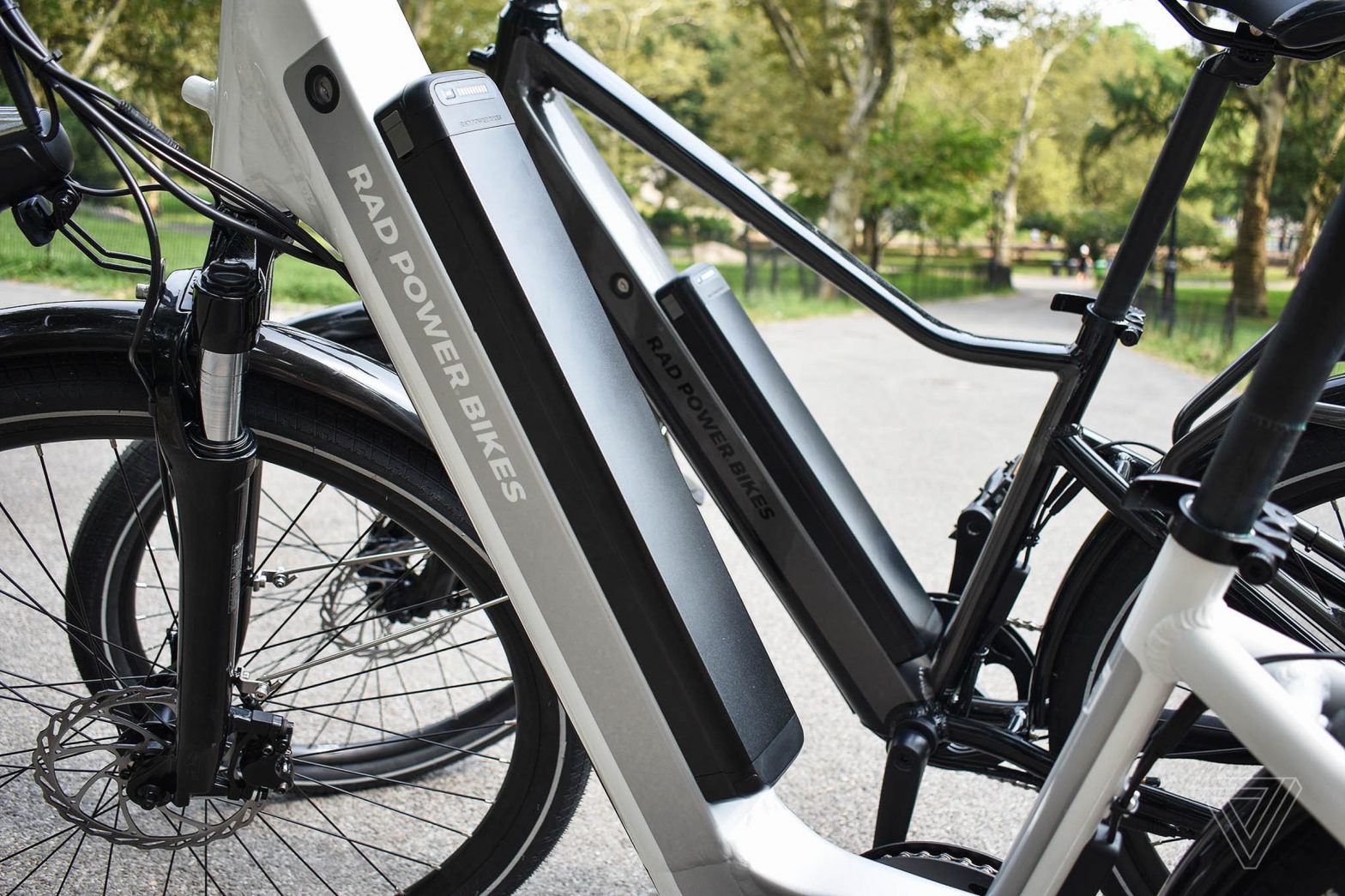/
The e-bike industry is racing to comply with new rules after a series of deadly fires linked to faulty batteries. Rad Power Bikes says it wants to be a leader for safety.
Share this story
:format(webp)/cdn.vox-cdn.com/uploads/chorus_asset/file/22867683/ahawkins_210914_4767_0002.jpg)
Rad Power Bikes, the largest e-bike manufacturer in North America, says that going forward, it will only produce bikes that comply with UL safety standards. The announcement comes after a series of deadly fires, mostly in New York City, were linked to malfunctioning e-bike batteries.
UL Standards and Engagement (formerly Underwriter’s Laboratory) is a nonprofit organization that develops safety standards for a whole host of consumer products, including e-bikes and e-scooters. (Its for-profit equivalent, UL Solutions, tests and certifies e-bikes.)
Until now, these safety standards were entirely voluntary, but that could be changing after the New York City Council passed a law requiring all e-bikes sold in the city to comply with UL standards. Some elected officials have proposed a federal safety standard for all e-bikes sold in the US.
The deadline for compliance with the New York City law is September, and Rad Power Bikes CEO Phil Molyneux said his company wants to set the tone going forward.
“We’re very passionate about safety of our riders and the quality of our bikes and pushing the industry forward,” Molyneux said in an interview with The Verge. “And that’s coming from the mantle that we are America’s largest e-bike brand. And so we have a responsibility to drive the e-bike momentum forward in terms of the safety agenda.”
Specifically, Rad Power Bikes’ will comply with UL 2849, which applies to e-bikes, and UL 2271, for e-bike batteries. Molyneux says the company plans on releasing “multiple new models in 2024” that comply with the UL standards.
:format(webp)/cdn.vox-cdn.com/uploads/chorus_asset/file/24913464/1500041967.jpg)
The standard covers the electrical system of an e-bike, putting its lithium-ion battery in particular through a series of stress tests to see how it reacts when overcharged, shaken, dropped, pierced, and crushed, as well as exposed to water or extreme temperatures. Quarterly audits are also required in order to maintain UL certification.
Only a small number of e-bike manufacturers comply with the standards, partly because they are voluntary but also because they can be very expensive. UL testing can cost anywhere between $30,000 to $100,000 per model, according to The New York Times, citing industry experts.
But Molyneux said that Rad Power Bikes has no intention of passing that cost along to its customers. “We’ve budgeted the cost out,” he said, “without increasing prices.”
The spate of battery fires, many of them fatal, has cast a harsh spotlight on the e-bike industry’s overreliance on cheaply made components, many of them from China. In New York, at least 92 fires, injuring 64 people and killing nine, were related to faulty e-bike batteries this year, according to the New York City Fire Department. Last year, 10 people were killed in e-bike battery fires.
Several factors have contributed to the rise in the number of fires. E-bikes are becoming more popular, especially among delivery workers in dense urban cities like New York City. Most delivery workers can’t afford higher-priced e-bikes, so they settle for those that are cheaply made — and more likely to include lower-quality battery cells. And they tend to charge their e-bikes in apartment buildings, often using mismatched chargers, further increasing the dangers.
These poorly made batteries can sometimes enter into a chemical process called a “thermal runaway,” in which one cell overheats, triggering other cells to disintegrate and release their stored energy. E-bike fires can be extremely difficult to extinguish, too, complicating the efforts by fire officials to respond quickly.
No Rad bikes have been implicated in any fires, but Molyneux said the company has a responsibility to push the rest of the industry to use higher-quality components.
:format(webp)/cdn.vox-cdn.com/uploads/chorus_asset/file/18936849/akrales_190801_3511_0243.jpg)
“I think where that becomes challenging is smaller companies may be electing cheaper cell technology, cheaper pack manufacturers and then the rigor of the quality control and the safety element isn’t making it into those products,” he said. “And so they’re brought to market [and] they are substandard.”
So far, New York City is the largest city to adopt new rules requiring UL certification for e-bikes. But other municipalities are expected to follow. The federal E-BIKE Act, which was introduced earlier this year, would require UL certification for e-bikes in order to be eligible for refundable tax credits.
But if the rest of the industry drags its feet on embracing UL certification, it will likely face recalls, lawsuits, and lasting reputational damage to its brands. And with e-bikes being held up as the answer to climate change, car-dominated streets, and traffic safety, there’s no room for error for Molyneux and many of his peers.
He acknowledged that lithium-ion batteries can be unpredictable by nature, and the e-bike industry can’t account for how they might be misused after they are sold to customers. But Molyneux asserts the e-bike industry can learn a lot from, of all places, automakers in how to address these safety concerns going forward. And a lot of that starts with adopting a common framework for safety.
“We’re still a young industry,” he said, “and there’s a lot of learning still to come.”
